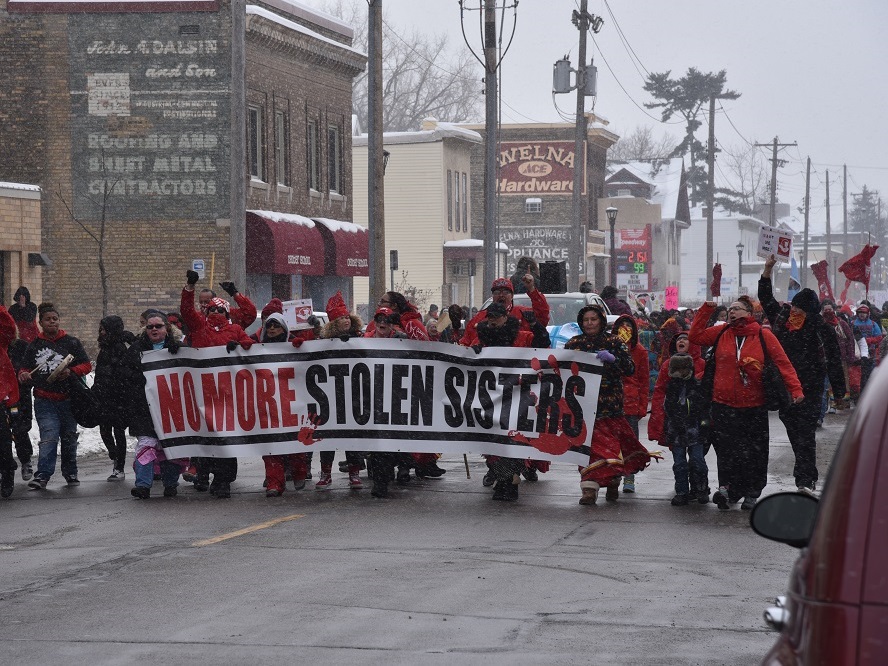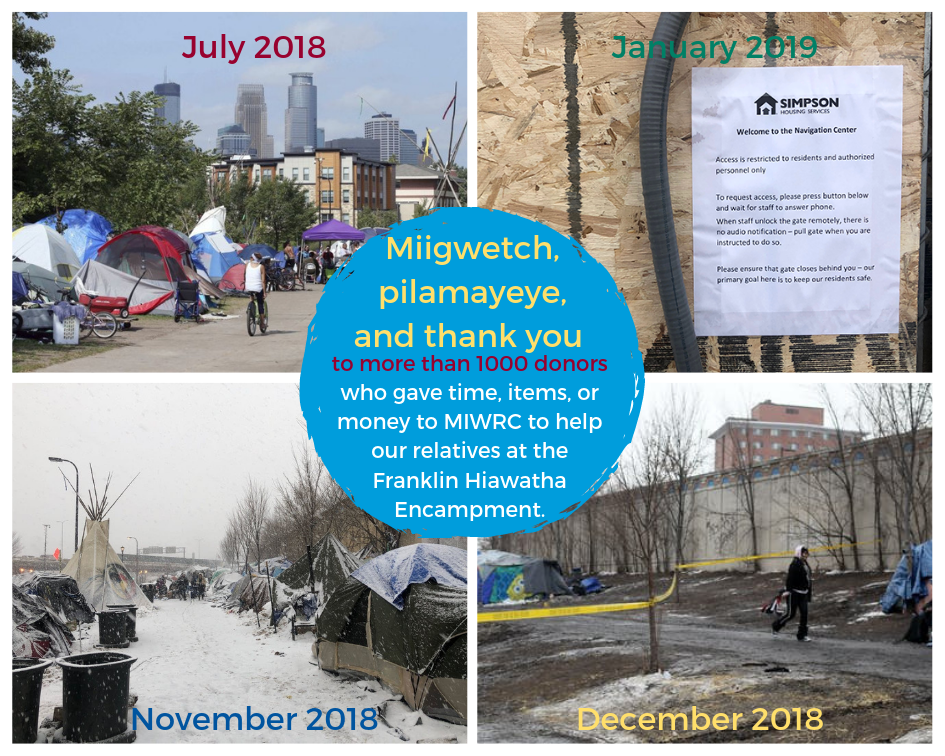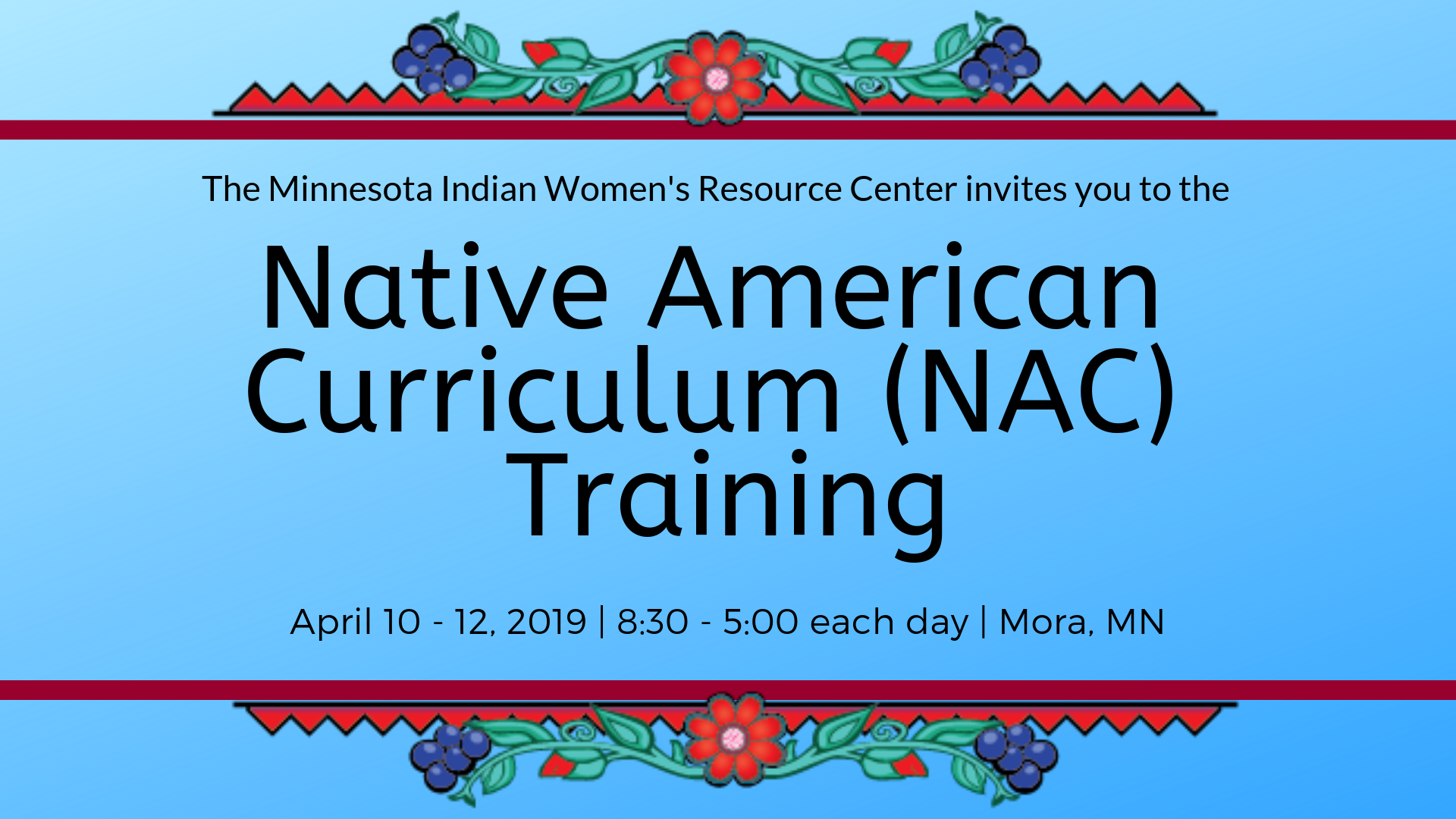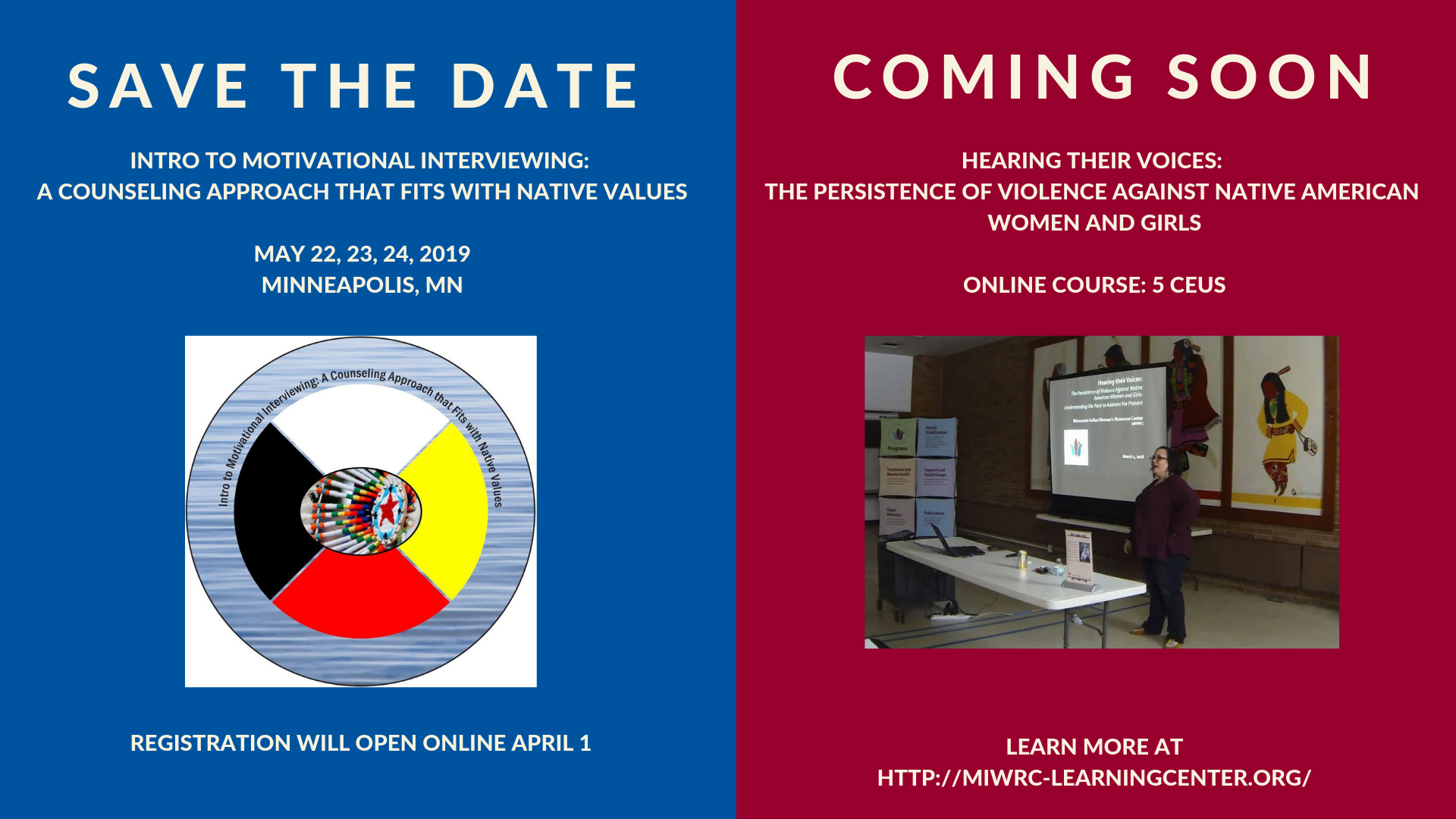MIWRC's Winter 2019 E-Newsletter | | See MIWRC news, including a look at the new Family Spirit Home Visiting Program, a thank you to those who donated to the Franklin Hiawatha Encampment, pictures from the 2019 Murdered and Missing Indigenous Women March, and information on upcoming training opportunities! | | | |  | | | New Program - Family Spirit | | We interviewed Elizabeth Taylor-Schiro, our Family Spirit Home Visitor, about her role with our new Family Spirit Home Visiting Program. The Family Spirit Program is the largest, most rigorous, and only evidence-based early childhood home visiting program designed specifically for American Indian communities, and is being implemented through a partnership with the Division of Indian Work. How did you come into your role? I was working in early childhood education and entered a school program in September, and I wanted a part-time position that let me work in the Native community and in maternal and infant childcare, which is my area of interest. What are you most looking forward to seeing come out of the Family Spirit Program? The curriculum was created by American Indians in the Southwest, not specifically for urban Native populations, so we are excited to adapt it to our community. I'm also excited at the opportunity to become a mentor for the young mothers, to provide support and empowering education to give young parents more agency. I hope to see the program give young mothers agency and respect instead of stigma or shame. The narratives coming out of the places Family Spirit has already been used show the power of the program to empower and strengthen young parents, so we hope that continues here. Are there any challenges in implementing Family Spirit? Getting information out to the community is difficult, since we are less bound to a geographic space. We have to convince parents and caregivers that this program has value, and that the support it gives is beneficial, in order for them to pass information on to it to the young mothers. There can be a disconnect to the culture in an urban setting that is different from on a reservation, so forming those connections will be a challenge. What do you see as the most valuable/innovative/exciting part of the Family Spirit Program? Hearing other people's excitement about the program is the most exciting thing. Family Spirit fills a gap in support for young/teen mothers that other programs or families might not. There is a focus on support, empowerment, and respect through the pregnancy and early childhood, not just on prevention. There is interest in programs like this within the community. We have a large and diverse population, and there are a lot of programs and services available, from community clinics to food access programs, but there is a lack of access and awareness of these programs, especially among younger people. Family Spirit is a good way to connect people to the wide variety of services that exist for support. | | | | | |  | Programmatic goals and direct-service priorities for the Minnesota Indian Women's Resource Center's (MIWRC) 2018 fiscal year expanded rapidly in the summer of 2018 when groupings of tents started appearing along Highway 55/Franklin Avenue - just four blocks from our agency building. While safe, stable housing has been a long-standing problem for Native American people and encampments of homeless people in the Twin Cities are nothing new, the high visibility of this location led to a surge in the number of individuals moving in. At the height of the summer/early fall, nearly three hundred people resided in more than two hundred tents in what came to be known as the Franklin Hiawatha Encampment, the Wall of Forgotten Natives, or, most simply, "the Wall." Due to the Mission of MIWRC and MIWRC's Executive Director, Patina Park's role as 2018 Chair of the Metropolitan Urban Indian Directors (MUID) group, we took on a leadership role almost immediately in August of 2018. Each day the number of people at the Wall and need for services continued to grow; concurrently, the need for intense planning and collaboration on immediate, mid and long-term solutions fell to MUID leadership, MUID member organizations, other nonprofit entities and various City, County, State and Tribal representatives/offices. Each week - sometimes each day or even from hour to hour - included a new crisis or layer requiring discussion across sectors and areas of service provision and never-ending strategizing based on shifting targets, all while prioritizing the humanity of the residents at the Wall with the ominous and completely unavoidable specter of winter getting closer by the day. While it seemed an insurmountable array of challenges, with intense collaboration and the tireless efforts of many involved, we are pleased to note from the www.franklinhiawathacamp.org website that since August, 119 people have found housing, more than 100 have moved to shelter, and 162 have utilized the Navigation Center. The successful move of all residents away from the Wall was an unprecedented achievement. Though there is still much work to be done as the Navigation Center will close in May of 2019, we want to extend our gratitude especially to the 900+ individual and organization donors who gave resources to MIWRC. We also want to highlight the incredible generosity of the following private foundations who gave significant contributions to MIWRC to do this work: The Minneapolis Foundation, Buuck Family Fund of The Minneapolis Foundation, the Moosehorn Fund of the Minneapolis Foundation, Greater Twin Cities United Way, John and Denise Graves Foundation, Thrivent, Patrick and Aimee Butler Family Foundation, FastBreak Foundation, Louis and Mary Kay Smith Family Foundation, Inc., Ameriprise Financial, Pohlad Family Foundation, Sundance Family Foundation, The Arthur R. and Elaine C. Halbardier Fund of InFaith Community Foundation, The Lois Swenson Fund for Peace, Justice, and Sustainable Communities of InFaith Community Foundation, Wells Fargo Foundation, Sundance Family Foundation, and JAMF Nation Global Foundation. | | | | | | Upcoming Training Opportunities | |  |  | Who Should Register?
The primary intent of these trainings is to provide education to professionals working with Native Americans. They are relevant for community members, health, mental health, law enforcement, and social work professionals, teachers, and other service providers working with Native Americans. Check out our events page and register on our website here. | | | | | | MIWRC's Mission & Vision The Minnesota Indian Women's Resource Center (MIWRC) is a non-profit community organization that provides social services and education to American Indian women and their families. Established in 1984 by three local Native women and one male Native ally, our Mission is to empower American Indian women and families to exercise their cultural values and integrity, and to achieve sustainable life ways, while advocating for justice and equity. Our Vision is to be focused and collaborative leaders in building intergenerational hope, health, cultural prosperity and education for American Indian families. | | | | | | | | Contact Us Minnesota Indian Women's Resource Center
2300 15th Avenue South
Minneapolis, 55404
(612) 728-2000
hpassmore@miwrc.org | | | | | | | |